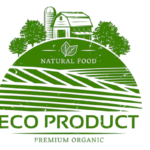Sustainability
By converting agricultural byproducts into valuable products, we ensure that nothing goes to waste.
Our Approach
We focus on maximizing the use of agricultural byproducts and minimizing waste through advanced processing technologies. By converting crop residues, food scraps, and other organic materials into valuable products, we significantly reduce landfill waste. Our waste management practices include rigorous recycling, composting, and waste-to-energy initiatives, aiming to achieve zero waste by continuously improving our processes. Reducing our carbon footprint is a key priority. We have adopted energy-efficient technologies and practices across our operations. By integrating renewable energy sources such as solar and wind power, we have significantly decreased our reliance on fossil fuels. Our goal is to further increase the proportion of renewable energy in our energy mix, reducing greenhouse gas emissions and supporting global efforts to combat climate change. We ensure that the materials we use are sourced responsibly. Our sustainable sourcing practices involve selecting suppliers who meet high environmental and ethical standards. We work closely with our suppliers to ensure that our raw materials are sustainably harvested or produced, which helps minimize our overall environmental footprint and supports sustainable agricultural practices. Innovation is crucial to our sustainability strategy. We continually research and develop new products that offer environmentally friendly alternatives to conventional materials. From bio-based fertilizers and renewable energy solutions to compostable packaging, our product innovations are designed to support sustainable practices and reduce the environmental impact of our operations and those of our customers.
Byproduct Utilization
Our process begins with the collection of agricultural byproducts, which may include crop
residues, fruit and vegetable scraps, and other organic materials left over from food production. These
byproducts are sorted and categorized to ensure that they are clean and suitable for processing. This initial
step is crucial for maintaining the quality and integrity of the final products.
Environmental Impact
Our commitment to sustainability is evident through significant strides in reducing our environmental footprint. Over the past five years, we have achieved a 35% reduction in carbon emissions, thanks to our increased use of renewable energy sources and improved operational efficiencies. Our energy consumption data reflects a shift towards greener alternatives, with renewable energy now comprising 55% of our total energy mix, up from 25% in 2019. In terms of waste management, we have successfully diverted 65% of waste from landfills in 2024, compared to 45% in 2019, through enhanced recycling and composting initiatives. Water conservation efforts have led to a 22% reduction in water usage per unit of production, and 50% of our water is now recycled.









